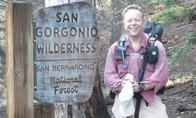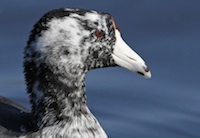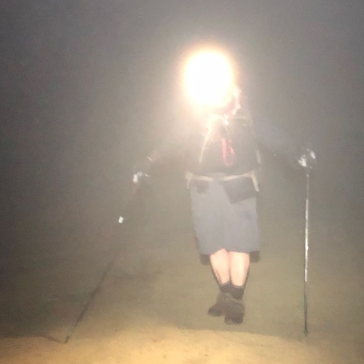Bad Grammar In The Forest
-
Teejate
- Posts: 107
- Joined: Wed Oct 12, 2011 6:46 pm
Something pretty random but I just wanted to see if anyone else has ever noticed this.
I've run across something over and over in National Parks and Forests throughout the state that drives me a little nuts.
The next time you take a piss in a vault toilet in the S.G's you'll probably see this sign.
PLEASE...
DO NOT put trash
in toilets,
it is extremely
difficult to remove.
THANK YOU
That comma after toilets always got to me. I KNEW it was wrong but figured there was no WAY an organization would create hundreds if not thousands of signs that used improper grammar.
Finally had to look it up. They went with a "comma splice" to join two independent clauses. An incorrect use. They should have gone with a period, semi colon or dash. They blew it.
It's like if someone were to run off 1,000 road signs for the Dept. of Transportation and spelled it SPOT but it was decided to put them up anyway. Or better yet, signs at trailheads that read TRIAL.
Gotta' drop them a note on this one. I'm curious as hell.
(But if I'm wrong it would be appreciated if someone would stop me before I made an ass of myself).
I've run across something over and over in National Parks and Forests throughout the state that drives me a little nuts.
The next time you take a piss in a vault toilet in the S.G's you'll probably see this sign.
PLEASE...
DO NOT put trash
in toilets,
it is extremely
difficult to remove.
THANK YOU
That comma after toilets always got to me. I KNEW it was wrong but figured there was no WAY an organization would create hundreds if not thousands of signs that used improper grammar.
Finally had to look it up. They went with a "comma splice" to join two independent clauses. An incorrect use. They should have gone with a period, semi colon or dash. They blew it.
It's like if someone were to run off 1,000 road signs for the Dept. of Transportation and spelled it SPOT but it was decided to put them up anyway. Or better yet, signs at trailheads that read TRIAL.
Gotta' drop them a note on this one. I'm curious as hell.
(But if I'm wrong it would be appreciated if someone would stop me before I made an ass of myself).
-
Hikin_Jim

- Posts: 4688
- Joined: Thu Sep 27, 2007 9:04 pm
Dude, just paint a dot over the comma (turning it into a semi-colon). Problem solved. 
HJ
HJ
-
oldcoot

- Posts: 64
- Joined: Wed Jun 16, 2010 9:42 pm
Speaking of trail signs, who's this guy STAY ON that so many trails are named after? Everywhere I got, there's a dedication sign STAYON TRAIL.
;o)....
;o)....
-
Sean

- Cucamonga
- Posts: 4250
- Joined: Wed Jul 27, 2011 12:32 pm
-
Sean

- Cucamonga
- Posts: 4250
- Joined: Wed Jul 27, 2011 12:32 pm
The sentence doesn't bother me. I read it with an implied conjunction: "Do not put trash in toilets, [because] it is extremely difficult to remove."
Not the way I would have composed the sentence. But then nobody asked me.
Also, the question of the comma is a punctuational issue, not a grammatical one.
Not the way I would have composed the sentence. But then nobody asked me.
Also, the question of the comma is a punctuational issue, not a grammatical one.
-
Teejate
- Posts: 107
- Joined: Wed Oct 12, 2011 6:46 pm
I read it with the implied conjunction as well Sean although I might have gone with, "...as it is extremely difficult to remove." Probably would have added, "Close the lid" too.Sean wrote: The sentence doesn't bother me. I read it with an implied conjunction: "Do not put trash in toilets, [because] it is extremely difficult to remove."
Not the way I would have composed the sentence. But then nobody asked me.
Also, the question of the comma is a punctuational issue, not a grammatical one.
And unless I'm mistaken, which has happened once or ten thousand times, isn't grammar the overall structure of a language which includes punctuation?
Either way, I'm not putting trash in the toilet. I heard it's difficult to remove.
-
Sean

- Cucamonga
- Posts: 4250
- Joined: Wed Jul 27, 2011 12:32 pm
For what it's worth, I have a background in this subject matter. But I encourage you to look up these words in a good dictionary.
Grammar is the study of words and how to form them into sentences. Punctuation is the use of marks to separate and clarify words. I suppose both could be considered part of linguistics, though I'm from the school that considers punctuation to be 90% worthless.
Grammar is the study of words and how to form them into sentences. Punctuation is the use of marks to separate and clarify words. I suppose both could be considered part of linguistics, though I'm from the school that considers punctuation to be 90% worthless.
-
fortified
- Posts: 105
- Joined: Sat Mar 02, 2013 10:03 pm
HEY "STAYCOOT" That because you are reading it wrong. It's not "stay on" trail its the
"stay on the" trail?
I think "stay on" is a tampax thing. Never hike there.
But yeah, the "Stayonthe" trail is the longest in the world.
"stay on the" trail?
I think "stay on" is a tampax thing. Never hike there.
But yeah, the "Stayonthe" trail is the longest in the world.
-
mattmaxon

- Posts: 1137
- Joined: Mon Mar 24, 2008 12:48 pm
-
Hikin_Jim

- Posts: 4688
- Joined: Thu Sep 27, 2007 9:04 pm
Wow!!!! Now that's cool.
Maybe I'll finally find a satisfying answer to my question: What is "run" in the sentence "See Spot run". Obviously it's imperative voice with an implicit "You" as the subject, the verb is "see," and the object is "Spot." It's a classic subject-verb-object structure. But what is "run?" Is it a gerund?
HJ
-
Teejate
- Posts: 107
- Joined: Wed Oct 12, 2011 6:46 pm
Awesome Matt. I think I'll be giving them a shout on this one. Good idea for a site/show.mattmaxon wrote: http://www.waywordradio.org/contact/
Just relax... Take a deep breath... put it out of your mind...
-
mattmaxon

- Posts: 1137
- Joined: Mon Mar 24, 2008 12:48 pm
I've enjoyed the podcast for the last few years. I originally heard it over the air broadcast from KPBS in SD when working on the PCT in Gardner Valley.
-
Teejate
- Posts: 107
- Joined: Wed Oct 12, 2011 6:46 pm
I just dropped them a note and left a message. If they get back to me I'll share their thoughts.mattmaxon wrote: I've enjoyed the podcast for the last few years. I originally heard it over the air broadcast from KPBS in SD when working on the PCT in Gardner Valley.
I'm not really a "word guy" but after checking out their forum it seems a lot of people are. They really get in to it.
-
Sean

- Cucamonga
- Posts: 4250
- Joined: Wed Jul 27, 2011 12:32 pm
It's an infinitive serving as a noun. In special cases you drop the "to" because it would sound funny (See Spot to run!). It's sort of like a gerund, which is the -ing verb form acting as a noun.Hikin_Jim wrote: What is "run" in the sentence "See Spot run".
-
Hikin_Jim

- Posts: 4688
- Joined: Thu Sep 27, 2007 9:04 pm
Well, I'll be danged. That's actually the best explanation I've ever heard, and I've asked English teachers. Thanks, Sean.
HJ
HJ
